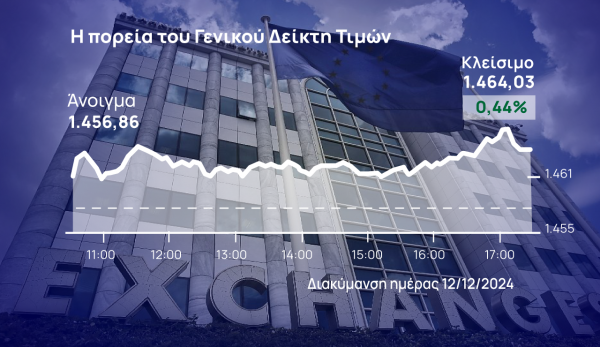
Greece marks the 3rd best climate performance in Europe in the areas under the Emissions Trading Scheme (ETS) according to the new analysis of Green Tank in view of the expected revision of the Pollution Directive under the “fit for 55” legislative package .
The rapid reduction of lignite production is decisive, while the emissions of the industry remained stagnant.
In this analysis, entitled “Trends in the Emissions Trading Scheme in the European Union and Greece”, Green Tank examines what has happened since the establishment of the Emissions Trading Scheme (ETS) in 2005 until today.
Utilizing the official data of the European Commission and the European Environment Agency, the changes in greenhouse gas emissions in electricity & heat production, industry and air transport during the first three phases of the ETS (2005-2020) at national and European level are analyzed.
The results of the analysis for the first 15 years of operation of the ETS show the effectiveness of the tool in reducing greenhouse gas emissions, which could be even greater if such a large number of free emission allowances were not distributed to Europe’s energy-intensive industries.
The pandemic has reduced industry emissions in the EU
In particular, the analysis of the data at European level shows that:
· ETS emissions fell by 42.3% from 2005 to 2020, slightly lower than the previous EU target for 2030 (-43%), highlighting the low ambition shown by the EU so far and the potential of ETS to contribute to climate progress.
· The decrease was achieved mainly due to the large drop in emissions in the field of electricity & heat production and mainly lignite and coal, while industry emissions remained almost constant for the entire period due to the number of free emission allowances allocated to it.
An exception is the last year of the pandemic during which, in addition to electricity generation, there was a significant reduction in industry and aviation.
Emissions in Greece decreased by 56.3%
· It had the third best performance in the EU as the emissions of the ETS sectors decreased by 56.3% in 2020 compared to 2005. Only Denmark (-58.3%) and Estonia (-56.4%) had slightly better performance.
· The decrease is largely due to the contraction of lignite power generation especially in the last two years, which in 2020 emitted 14 million tons less CO2 compared to 2018. Thus in 2020 Greece showed the largest percentage reduction in emissions from solid minerals fuels among EU lignite-producing countries compared to 2005 (-78.9%).
· However, the reduction of lignite emissions was accompanied by an increase in fossil gas emissions (+ 44% in 2020 compared to 2013) but also by the appearance of fossil gas units in the list of the 10 largest polluters in Greece, in 2020, for for the first time since the beginning of the 3rd phase of SEDE in 2013.
· 2020 was the first year that emissions from the energy-intensive industry (11.5 million tons) exceeded those from lignite (9.2 million tons).
“The de-lignification is pushing the country to the climatic vanguard. However, in order to consolidate climate progress, Greece must limit the use of fossil gas and actively support the green shift of energy-intensive industry. “In the forthcoming revision of the ETS Directive, courageous reforms are needed that will make a decisive contribution to reducing clean greenhouse gas emissions by at least 55% by 2030 compared to 1990, not only at European but also national level.” Nikos Mantzaris, policy analyst for The Green Tank think tank.
Latest News

Airbnb: New Measures Add €600 in Extra Costs for Property Owners
Property managers face an immediate administrative fine of 5,000 euros if access to the inspected property is denied or any of the specified requirements are not met.

Economist: Greece Included in the Best Performing Economies in 2024
Meanwhile, Northern European countries disappoint, with sluggish performances from the United Kingdom and Germany.

EasyJet Expands Its Routes from Athens
The airline’s two new routes will be to London Luton and Alicante and they will commence in summer 2025.

Capital Link Forum Highlights Greece’s Economic Resurgence; Honors BoG Gov Stournaras
Capital Link Hellenic Leadership Award recipient, Bank of Greece Gov. Yannis Stournaras, an ex-FinMin, was lauded for his pivotal role during Greece’s economic recovery

Tourist Spending in Greece Up by 14%, Visa Card Analysis Shows
Greece’s capital Athens emerged as the most popular destination, recording a 17% increase in transactions with Visa cards, surpassing even the cosmopolitan island of Mykonos.

Inflation in Greece Unchanged at 2.4% in Nov. 2024
The general consumer price index (CPI) posted a 0.4% decrease in November compared to the previous month

2024 Christmas Holidays: Extended Shop Hours Schedule
The 2024 Christmas Holidays extended shop hours schedule commences on Thursday, December 12 and runs until the end of the year.

ELSTAT: Seasonally Adjusted Unemployment Down in October
The number of employed individuals reached 4,284,694, an increase of 67,723 compared to October 2023 (+1.6%) and 22,002 compared to September 2024 (+0.5%).

Greek PM’s Chief Economic Adviser Resigns
In the post on his Facebook page, Patelis did not disclose the reasons that led him to step down.

“Masdar Invests in the people of Greece and in the vision of TERNA ENERGY”
Four messages from the CEO of Masdar, the Arab renewable energy giant, after its acquisition of 70% of TERNA ENERGY













![Fraport: Πάνω από 35 εκατ. επιβάτες στα αεροδρόμια το 11μηνο – Πτώση στη Μύκονο [πίνακας]](https://www.ot.gr/wp-content/uploads/2022/06/fraport-90x90.jpg)

























![Fraport: Πάνω από 35 εκατ. επιβάτες στα αεροδρόμια το 11μηνο – Πτώση στη Μύκονο [πίνακας]](https://www.ot.gr/wp-content/uploads/2022/06/fraport-600x375.jpg)


 Αριθμός Πιστοποίησης Μ.Η.Τ.232433
Αριθμός Πιστοποίησης Μ.Η.Τ.232433